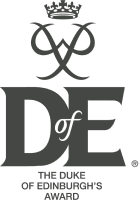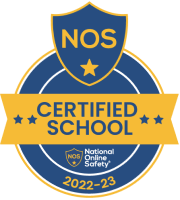Business Studies
This subject is part of the Faculty of Mathematics, Enterprise and Computing
Our Head of Faculty is
Mr J Pridden jpridden@tcat.school
Our subject teachers and email are
Mr M Lake mlake@tcat.school
Our subject intent
is to provide students with a comprehensive understanding of how businesses operate, the factors that influence them, and the skills needed to succeed in the business world. It aims to develop students' knowledge of key business concepts, their ability to analyze business situations, and their capacity to make informed decisions. Ultimately, the goal is to equip students with the skills and knowledge necessary for further study, future careers, and active participation in the economic landscape.
further breakdown would be to look at:
- Key Business Concepts - Students will learn about various business concepts, including marketing, finance, human resources, and operations.
- Business Structures and Functions -They will explore how businesses are set up, organised, and how different departments within a business function.
- External Influences - Students will analyze the impact of external factors like economic conditions, government policies, and technological advancements on business decisions and performance.
- Analytical and Problem-Solving Skills - Students will develop the ability to analyze business problems, evaluate options, and make informed decisions.
- Critical Thinking - They will learn to critically assess information, identify potential issues, and consider the implications of different business choices.
- Financial Literacy - Students will gain an understanding of financial concepts, including revenue, costs, profit, and cash flow, as well as the ability to interpret financial statements.
Curriculum Subject Offer
Autumn Term
|
Year group
|
Autumn 1
|
Autumn 2
|
|
Year 10
|
- Introduction to the structure, content and assessment of the NCFE Level1 / 2 Technical Award in Business and Enterprise
- Knowledge acquisition Content Area 1: Entrepreneurship, business organisation and stakeholders:
- What is an entrepreneur
- Entrepreneurial motivators
- Entrepreneurial skills and qualities
- Aims and objectives of business
- Reasons and structure of business aims and objectives
- Financial aims and objectives
- Non-financial aims and objectives
- Business structures and types
- Business structure impact
- Managing change in structures
- What are stakeholders
- Types of stakeholder
- Stakeholder engagement
- Stakeholder conflict
- Summative Content Area Assessment
|
- Knowledge acquisition Content Area 2: Market research, market types and orientation and marketing mix:
- What are aspects of a market
- Targeting customers
- Competitive business environment
- What is market research
- Primary market research
- Secondary market research
- Tertiary market research
- Types of data and data sets
- Types of market
- Market orientation
- The marketing mix
- Demand and supply
- Pricing strategies
- Product placement
- Promotional methods
- Product marketing
- The product life cycle
- Product development and innovation
- The Boston Matrix
- Branding
- Summative Content Area Assessment
|
Spring Term
|
Year group
|
Spring 1
|
Spring 2
|
|
Year 10
|
- Knowledge acquisition Content Area 3: Human resource requirements for business and enterprise:
- Methods of recruitment
- The recruitment process and stages of recruitment
- Contracts of employment
- Staff development
- Monitoring of staff performance
- Financial motivation of staff
- Non-financial motivation of staff
- Motivational theory
- Summative Content Area Assessment
|
- Knowledge acquisition Content Area 4: Operations management:
- Outsourcing
- Production methods
- Quality control
- Customer service
- Summative Content Area Assessment
|
Summer Term
|
Year group
|
Summer 1
|
Summer 2
|
|
Year 10
|
- Knowledge acquisition Content Area 5: Business Growth:
- Internal business growth strategies
- External business growth strategies
- Efficiency
- Economies and diseconomies of scale
- Managing change and challenges of growth
- Summative Content Area Assessment
|
- Contingency
- Knowledge consolidation, revision, and practice:
- Content Area 1: Entrepreneurship, business organisation and stakeholders
- Content Area 2: Market research, market types and orientation and marketing mix
- Content Area 3: Human resource requirements for business and enterprise
- Content Area 4: Operations management
- Content Area 5: Business Growth
|
Autumn Term
|
Year group
|
Autumn 1
|
Autumn 2
|
|
Year 11
|
- Knowledge acquisition Content Area 6: Sources of enterprise funding and business finance:
- Types of funding
- Common business financial terminology
- Revenue
- Profit
- Profit and loss
- Margin of safety
- Costs
- Liabilities
- Assets
- Common financial documents
- Break-even analysis
- Cash-flow forecasting
- Statement of income
- Balance sheets
- Profitability ratios
- Liquidity ratios
- Cash-flow management
|
- Knowledge acquisition Content Area 7: The impact of the external environment on business and enterprise:
- Fiscal policy
- Taxation
- Public sector
- Government spending
- Monetary policy
- Economics
- Interest rates
- Employment
- Legislation
- Social impacts
- Technology
- Environmental
- Competition
- Summative Content Area Assessment
- Pre-Public Examination
|
Spring Term
|
Year group
|
Spring 1
|
Spring 2
|
|
Year 11
|
- Knowledge acquisition Content Area 8: Business and enterprise planning:
- Purpose of business planning
- Benefits of business planning
- Sections of a Business Plan
- Non-Exam Assessment preparation
|
- Non-Exam Assessment commences
|
Summer Term
|
Year group
|
Summer 1
|
Summer 2
|
|
Year 11
|
- Non-Exam Assessment concludes
- Programme of revision for Examined Assessment
|
- Programme of revision for Examined Assessment
- Examined Assessment concludes
- Course ends
|






